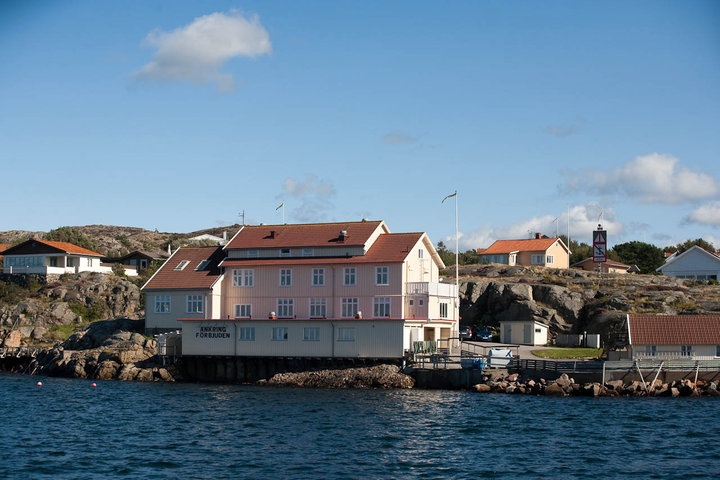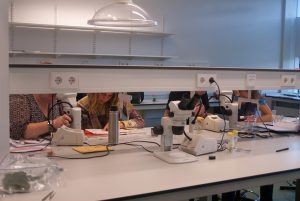
Max Planck Institute, Seewiesen
The MEME programme has been designed for providing students an optimal training for a subsequent PhD project and eventually a career in academic research. Students in the MEME programme will spend at least half of their time (60 EC) doing research, carrying out at least two different projects. During this time, MEME students are embedded in research groups and participate in all (scientific and social) activities, including research seminars, literature clubs and group discussions. Each student is individually supervised by an experienced researcher who will ensure that the student learns how to do research. At the end of their project, students are expected to produce a Master’s thesis which is tangible proof that the student is able to tackle a research problem and report the results in line with common scientific practice.
Finding a Project

Klubban biological station, Sweden
Although research projects are key elements of the MSc programme at all partner universities, the exact regulations concerning these projects differ slightly between these universities. Please refer to the MEME Study Guide for exact details regarding the regulations.
- For Groningen, check the research projects overview of the Groningen Institute for Evolutionary Life Sciences (GELIFES).
- For Uppsala, check the research page of the Evolutionary Biology Centre (EBC).
- For Munich, check the Faculty of Biology website for an overview of research groups and opportunities.
- For Montpellier, check the Research page for an overview of research groups and institutes within the Université Montpellier.
- For Harvard, check the website of the Department of Organismic and Evolutionary Biology (OEB).
- For Lausanne, check the Department of Ecology and Evolution (DEE) website.
Research at Associate Partner Universities
Conducting a research project at an associated university is an opportunity available for MEME students during their final semester in the programme. Students interested in this option contact potential supervisors at the associate universities (not before April or May in their second semester!) in order to discuss potential research projects.

Lab work
All associate university projects are co-supervised from one of the four MEME partner universities, and the project counts as a degree project at that university. In other words, MEME students studying at Harvard or Lausanne do not receive a Master’s degree from that university, but from the MEME university co-supervising the project. However, the MEME academic transcript issued upon graduation clearly describes that part of the research has been conducted at Harvard.
Research at Harvard
Harvard University is an associated partner of the MEME programme. Per cohort, a maximum of eight students gets the opportunity of spending one semester at Harvard for conducting a research project. Based on a brief research plan, the student’s CV, and an invitation letter of the host group, our colleagues at Harvard make a selection among the applying students.
Research at Lausanne
University of Lausanne is the other associated partner university of the MEME programme. Per cohort, a maximum of four students will have the opportunity to spend a semester conducting a research project. The MEME Administrative Coordinator provides approval to attend Lausanne based on a student’s research and overall trajectory within the programme.
